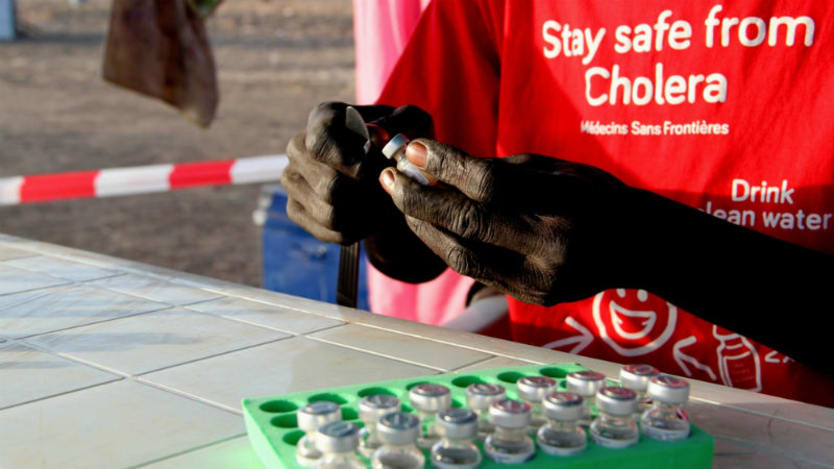
ABU DHABI — Médecins Sans Frontières plans to close or scale down “the majority” of its 37 cholera treatment facilities in Yemen, after seeing a dramatic decline in cases in recent weeks, according to a news release shared with Devex.
At the peak of the outbreak, MSF’s facilities saw more than 11,000 patients per week. That number has fallen to 567 in the second week of October, the organization reported.
Moreover, less than 10 percent of new admissions have required hospitalization, meaning their symptoms could be caused by pathogens other than cholera.
“The cholera outbreak is not over, but it is no longer our medical priority in Yemen,” Ghassan Abou Chaar, MSF head of mission in Yemen, said in the release. “However, this should not eclipse the dire health situation of millions of Yemenis who are unable to access basic primary health care.”
MSF, together with the U.N. Children’s Agency and the World Health Organization, was at the frontlines of responding to the cholera epidemic, which quickly became the world’s largest over the summer.
The caseload reached 815,000 earlier this month, making it more significant than the previous record breaking outbreak in Haiti in 2010. But the pace of infections began to slow significantly by August, WHO reported.
It was not immediately clear why the epidemic has slowed so significantly, although weather may be one factor. Yemen’s rainy season typically lasts from July to September. Cholera, a waterborne disease, typically spreads more easily during this period.
Despite the reduction in cholera, health authorities and aid agencies in Yemen continue to face a barrage of concerns in the wartorn country. Roughly two-thirds of the country is food insecure, and there is an acute shortage of basic medicines.
Some 15 million people in the country are without access to even basic health care. The majority of health facilities in the country have been damaged by conflict, while most government health workers haven’t received salaries for nearly a year.
Read more international development news online, and subscribe to The Development Newswire to receive the latest from the world’s leading donors and decision-makers — emailed to you free every business day.
